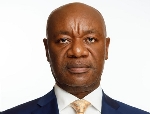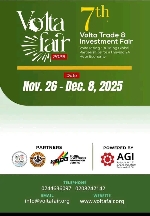Bank of Ghana warns against unlicensed foreign exchange transactions
 Dr Johnson Asiama, Central bank governor
Dr Johnson Asiama, Central bank governor
The Bank of Ghana (BoG) has cautioned the public against engaging in unlicensed foreign exchange activities, stressing that such practices—including black market dealings, pricing, quoting, advertising, invoicing, or making and receiving payments in foreign currencies—are strictly prohibited under the Foreign Exchange Act, 2006 (Act 723).
In a statement issued on Wednesday, August 27, 2025, and signed by Ms. Aimee V. Quashie on behalf of the Secretary of the Bank, the Central Bank directed both individuals and institutions to cease such practices immediately.
The Bank reiterated that the Ghana Cedi remains the sole legal tender in the country, and no resident may price, advertise, invoice, or accept payment in foreign currency unless duly licensed or authorised by the BoG.
The restrictions cover transactions including:
Payment of school fees
Sale and rental of vehicles
Sale and rental of real estate
Airline tickets
Domestic contracts
Retail shopping
Online sales
Hotel accommodation
The BoG clarified that foreign currency invoices may be issued only to expatriates or non-residents, with all proceeds required to be paid into a Foreign Exchange Account (FEA) with a licensed bank.
Quoted exchange rates, it added, must align with commercial banks’ prevailing market rates and be benchmarked against the BoG’s published reference rate.
The statement further assured the public that legitimate external payments remain transferable through the formal banking system, subject to regulatory thresholds and commercial bank processes.
The Central Bank underscored its commitment to strict enforcement of the law, warning that violators will face sanctions and possible legal action in line with Act 723.
Source: classfmonline.com/Cecil Mensah
Trending Business

Sports Minister strengthens Ghana–Türkiye ties at World Cooperation Industries forum
03:16
Bank of Ghana scales back forex market interventions amid IMF concerns
13:29
Auditor-General flags GH¢138.9bn discrepancy in public debt records
12:23
PURC boss calls for stronger stakeholder collaboration in utility sector
14:12
Energy Minister meets new WAPCo MD, reaffirms partnership in Ghana’s energy sector
11:32
Volta Rising: Region gears up for Ghana’s first round-the-clock trade fair
11:38
Organised Labour pushes for further minimum wage increase
07:16
Revenue gains from DP stickers not your achievement – DVLA CEO made aware
10:51
GIPC, Japan explore stronger economic ties at TICAD-9
04:27
Women’s Wing of Ghana Fintech & Payments Association congratulates BoG’s Second Deputy Governor
05:23



